"Bottom line is, I'm not pleased with how things are going," Fauci says
From CNN's Amanda Watts
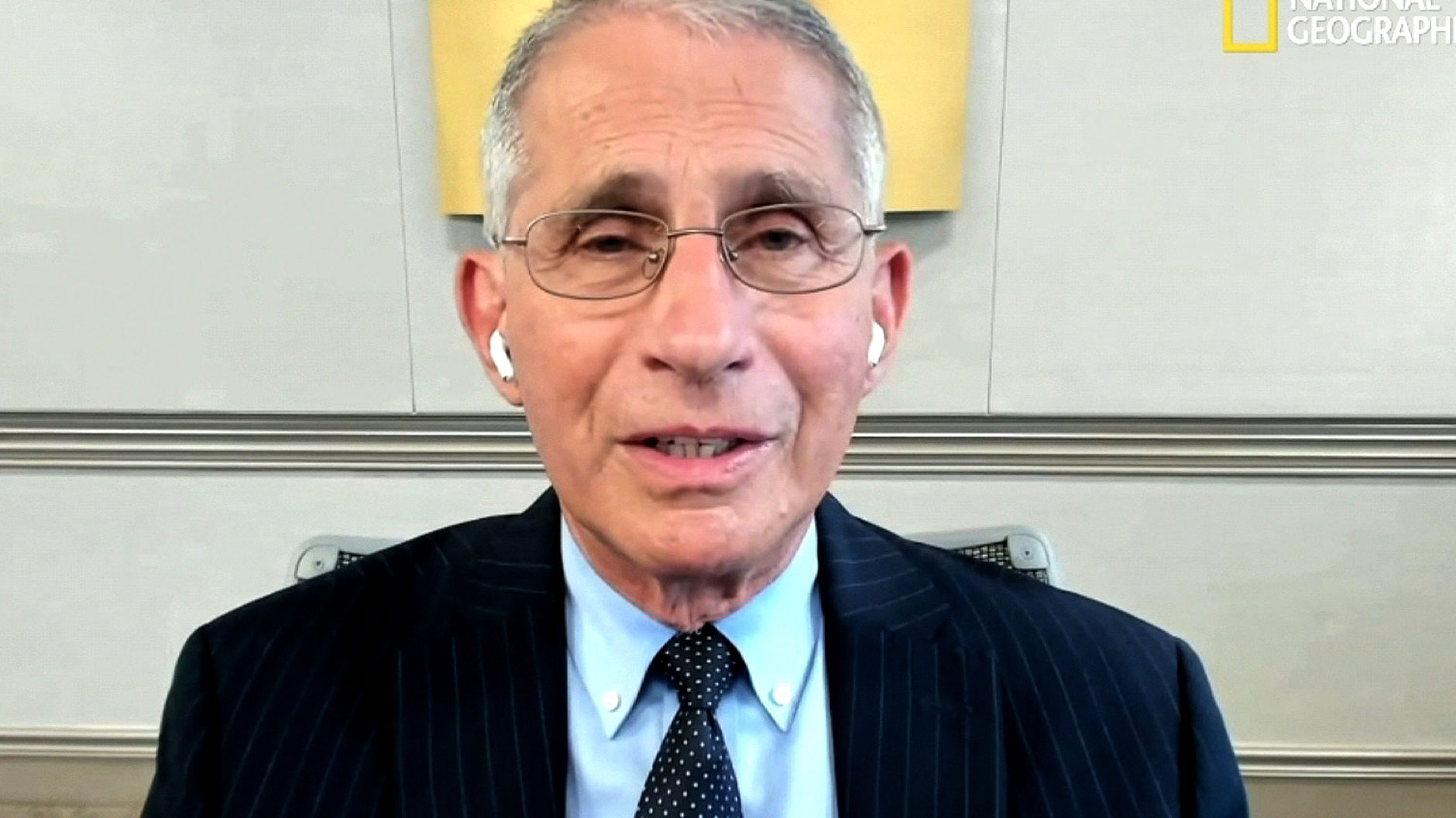 Dr. Anthony Fauci speaks during a National Geographic panel on Thursday. National Geographic
Dr. Anthony Fauci speaks during a National Geographic panel on Thursday. National GeographicDr. Anthony Fauci, the nation's leading infectious disease expert, said Thursday that he was not pleased with the state of the pandemic in the US.
“Bottom line is, I'm not pleased with how things are going," he said during a National Geographic panel.
Fauci said states such as California, Florida, Texas and Arizona have turned their situations around and they are “having now, less deaths, less hospitalizations, less cases.”
But he warned it’s not all good news across the country.
“We know now, from sad past experience, that that's a predictor that you're going to have more surges,” he said.
The pandemic has had a "broad impact" on mental health issues, according to CDC survey
From CNN’s Andrea Kane
A new survey by the US Centers for Disease Control and Prevention found that almost 41% of respondents are struggling with mental health issues stemming from the coronavirus pandemic – both related to the pandemic itself and the measures put in place to contain it, including physical distancing and stay-at-home orders.
The findings were reported Thursday in the journal Morbidity and Mortality Weekly Report, published by the CDC.
In an online survey of more than 5,400 adults living in the US conducted during the last week of June, 40.9% of respondents reported at least one mental or behavioral health condition:
But the mental health issues were not shouldered equally by everyone.
For example, at least one adverse mental or behavioral health symptom was reported by 75% of 18-to-24 year olds, 52% of 25-to-44 year olds, 52% of Hispanics, as well as 54% of essential workers, 67% of unpaid caregivers for adults, and 66% of those with less than a high school diploma. The percentage among those with existing mental health conditions was even higher.
And the percentage of those who reported having seriously considered suicide in the 30 days before completing the survey was significantly higher among respondents age 18-24 (25.5%), Hispanics (18.6%) and Blacks (15.1%), self-reported unpaid caregivers for adults (30.7%), and essential workers (21.7%).
In all, while symptoms of mental or behavioral health conditions varied significantly among subgroups, unpaid caregivers for adults fared the worst.
These findings align with previous studies, which found symptoms of anxiety and depressive disorders increased considerably in the US between April and June of 2020, compared with the same period in 2019.
The study authors concluded: “Periodic assessment of mental health, substance use, and suicidal ideation should evaluate the prevalence of psychological distress over time. Addressing mental health disparities and preparing support systems to mitigate mental health consequences as the pandemic evolves will continue to be needed urgently.”
Biden and Harris will participate in a coronavirus briefing today
From CNN's Eric Bradner
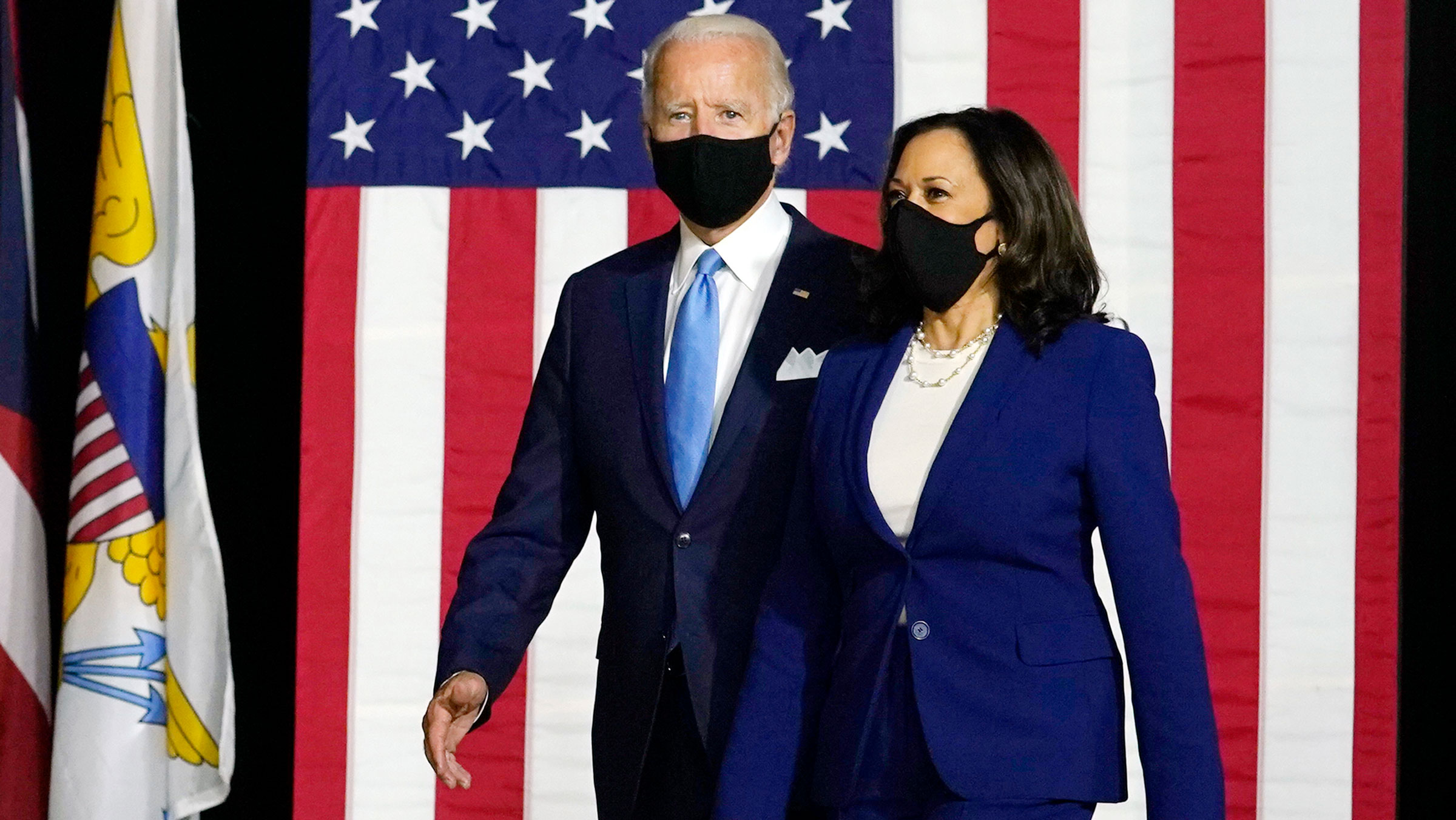 Joe Biden, the presumptive Democratic presidential nominee, attends a campaign event with his running mate, US Sen. Kamala Harris, on Wednesday. Carolyn Kaster/AP
Joe Biden, the presumptive Democratic presidential nominee, attends a campaign event with his running mate, US Sen. Kamala Harris, on Wednesday. Carolyn Kaster/APPresumptive Democratic nominee Joe Biden and his running mate, California Sen. Kamala Harris, are set to appear together in Delaware for a second consecutive day for a briefing on the coronavirus pandemic.
The two are set to receive a Thursday briefing from a panel of public health experts assembled by Biden's campaign.
Biden has for months been receiving private briefings from a group of health experts who are advising his campaign on pandemic policies, as well as whether and how the former vice president can hold in-person events.
That briefing will be followed by speeches from Biden and Harris, who was offered and accepted the Democratic vice presidential nod on Tuesday and campaigned in person with Biden for the first time on Wednesday in Wilmington.
Biden and Harris both used speeches Wednesday to hammer President Trump over his handling of the pandemic.
Harris contrasted the coronavirus pandemic, which has left more than 166,000 Americans dead and caused more than 5 million cases in the United States, with Ebola during former President Barack Obama and Biden's administration, which resulted in two deaths.
Biden has long called for Trump to drastically escalate the production of protective medical equipment by invoking the Defense Production Act. He has also said he would rapidly expand coronavirus testing and supplies, and make all coronavirus-related medical care free.
Read more about today's event here.
Covid-19 pandemic costs global economy $375 billion a month, WHO says
From CNN’s Amanda Watts
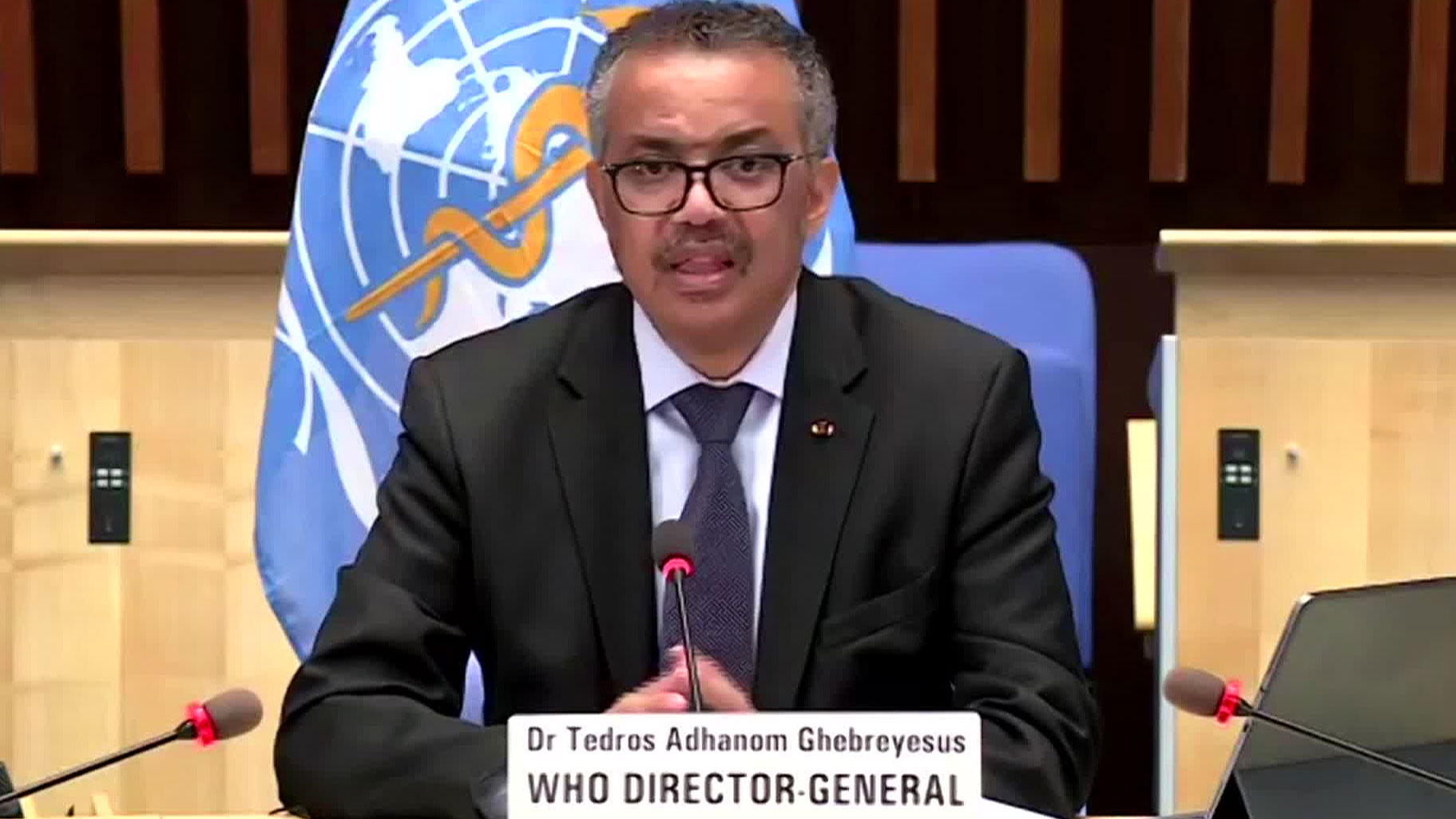 Tedros Adhanom Ghebreyesus, the director-general of the World Health Organization, speaks during a news conference on Thursday. World Health Organization
Tedros Adhanom Ghebreyesus, the director-general of the World Health Organization, speaks during a news conference on Thursday. World Health OrganizationThe Covid-19 pandemic costs an estimated $375 billion a month globally, the World Health Organization (WHO) said, based on information from the International Monetary Fund.
During a Thursday news conference, Tedros Adhanom Ghebreyesus, WHO's director-deneral, said, “IMF estimates the pandemic costs the global economy 375 billion US dollars a month, and predicts a cumulative loss to the global economy over two years of over 12 trillion US dollars.”
“The world has already spent trillions dealing with the short term consequences of the pandemic,” Tedros added.
Tedros said that funding the WHO’s ACT Accelerator is “the best economic stimulus the world can invest” in.
“The accelerator is the only up and running global initiative that brings together all the global research and development manufacturing regulatory purchasing and procurement needed for all the tools required to end the pandemic,” he added.
WHO says there isn't "sufficient information" to make a judgement about Russian Covid-19 vaccine
From CNN's Amanda Watts
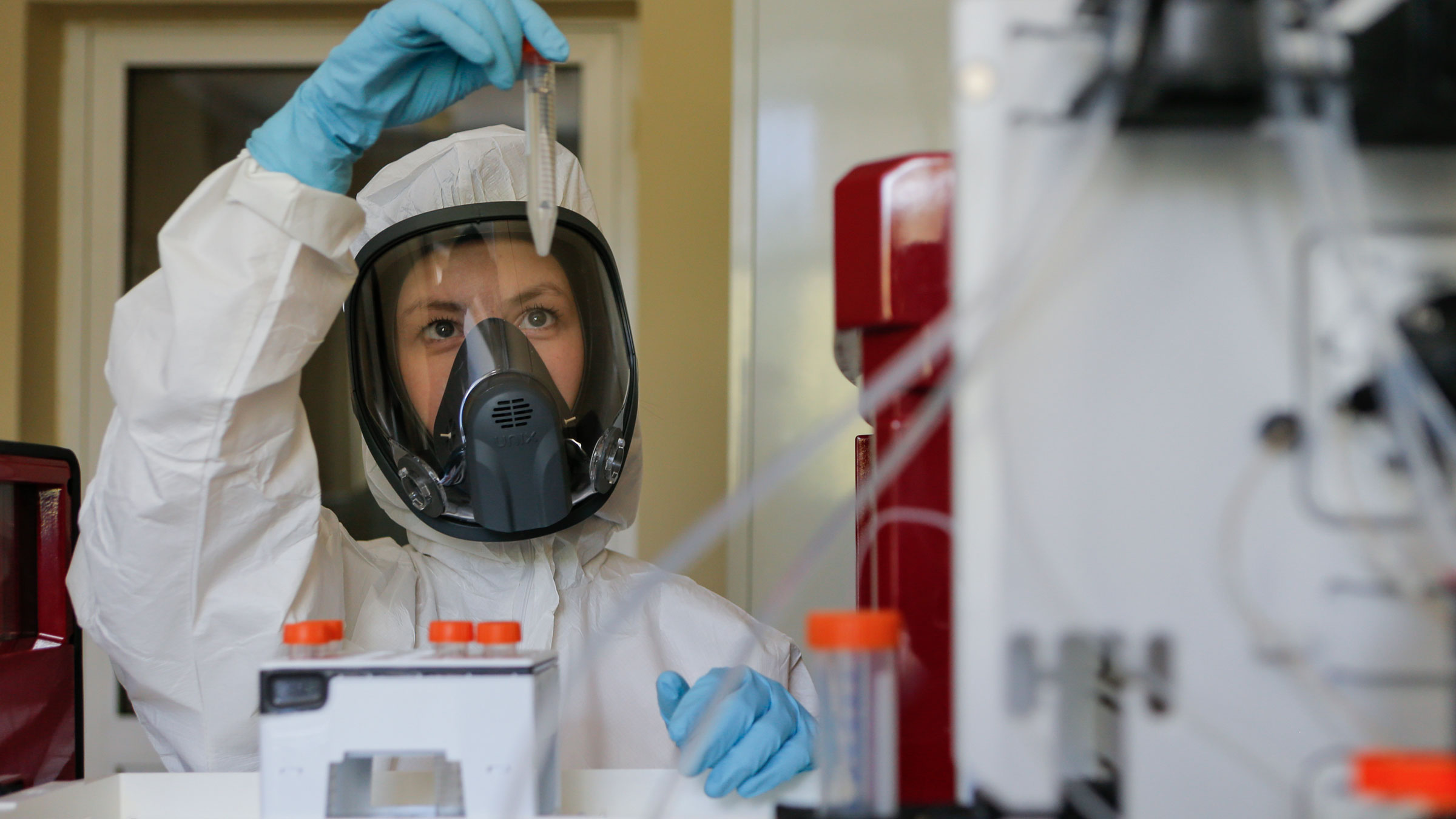 An employee works with a coronavirus vaccine in this photo provided by the Russian Direct Investment Fund on August 6. Alexander Zemlianichenko Jr./Russian Direct Investment Fund/AP
An employee works with a coronavirus vaccine in this photo provided by the Russian Direct Investment Fund on August 6. Alexander Zemlianichenko Jr./Russian Direct Investment Fund/APDr. Bruce Aylward, senior adviser of the director-general of the World Health Organization, said there is not “sufficient information at this point to make a judgement” on the Russian vaccine that was announced this week.
Speaking during a World Health Organization briefing on Thursday, Aylward said, “we're currently in conversation with Russia to get additional information, understand the status of that product, the trials that have been undertaken, and then what the next steps might be.”
Earlier this week, Russian President Vladimir Putin announced the approval of a coronavirus vaccine, claiming it as a "world first," despite continued concern and questions over its safety and effectiveness.
Football player accuses his Florida university of lying about Covid-19 safety
From CNN’s Amanda Watts
Florida State University wide receiver Warren Thompson has accused the school’s athletics department of lying "multiple times" about player health conditions during the first week of football camp.
Warren made the accusations in a letter posted on Instagram:
“Being a Student Athlete is difficult during this time and the proper leadership regarding these problems does not exist. During this entire week of camp I have been lied to multiple times about the conditions of other players health as well as mine," Warren said.
When asked about what Thompson had posted, FSU coach Mike Norvell said during a previous scheduled media availability, "It’s obviously disappointing to see what was said. We’ve been very open and transparent throughout this process.”
Some of Thompson's teammates disagreed with his critical Instagram post.
Defensive back Asante Samuel tweeting, "I feel safe coming to practice everyday because of the protocols FSU has in place !!!" Marvin Wilson, Seminoles defensive tackle, tweeted "I feel safe with what @FSUFootball is doing for us through this pandemic and keeping us safe. Let’s play some football."
FSU is scheduled to play their first game on Sept. 12 against Georgia Tech.
CNN has reached out to the university for comment.
New Covid-19 measures implemented in Peru as transmission increases 75% among children
From CNN’s Claudia Rebaza in London
 People in Lima, Peru, wait in line to refill oxygen tanks on August 3. Martin Mejia/AP
People in Lima, Peru, wait in line to refill oxygen tanks on August 3. Martin Mejia/APPeru’s President Martin Vizcarra announced new lockdown measures after the country has seen an increase in the number of Covid-19 cases during the month of July.
“We had weakened our actions to stop the spread of the virus and we need to reinforce them,” Vizcarra said during a televised speech on Wednesday evening.
“We must stop the transmission” Vizcarra added.
Vizcarra issued an official decree that orders six more regions and 34 provinces placed under localized lockdown. The regions are Arequipa, Ica, Junin, Huanuco, San Martin and Madre de Dios.
The government previously eased the country’s lockdown measures on July 1 while imposing localized lockdowns for seven of Peru’s 24 regions.
The president also ordered the return of "mandatory immobilization" across the country on Sundays.
Social and family gatherings have been also banned. “Social and family gatherings are causing the increase in cases,” the President said asking Peruvians to stop family and sports reunions for now.
Vizcarra also announced that children under 14 will be allowed to go out for a walk within 500 meters of their homes for no more than 30 minutes a day, as long as accompanied by one adult.
“Transmission levels among children and teenagers have increased in 75% and that has caught our attention” the President said.
Health Minister Pilar Mazzetti told a local radio station that 81 children have died and 23,000 have been infected with coronavirus since the pandemic started.
Peru’s health ministry reported 8,875 new Covid-19, bringing the total number of cases to 498,555 on Wednesday evening. The death toll reached 21,713.
The state of emergency in the country remains in place until Aug. 31.
Study sheds light on how NYC's early Covid-19 death toll compares to that of the 1918 pandemic
From CNN's Jen Christensen
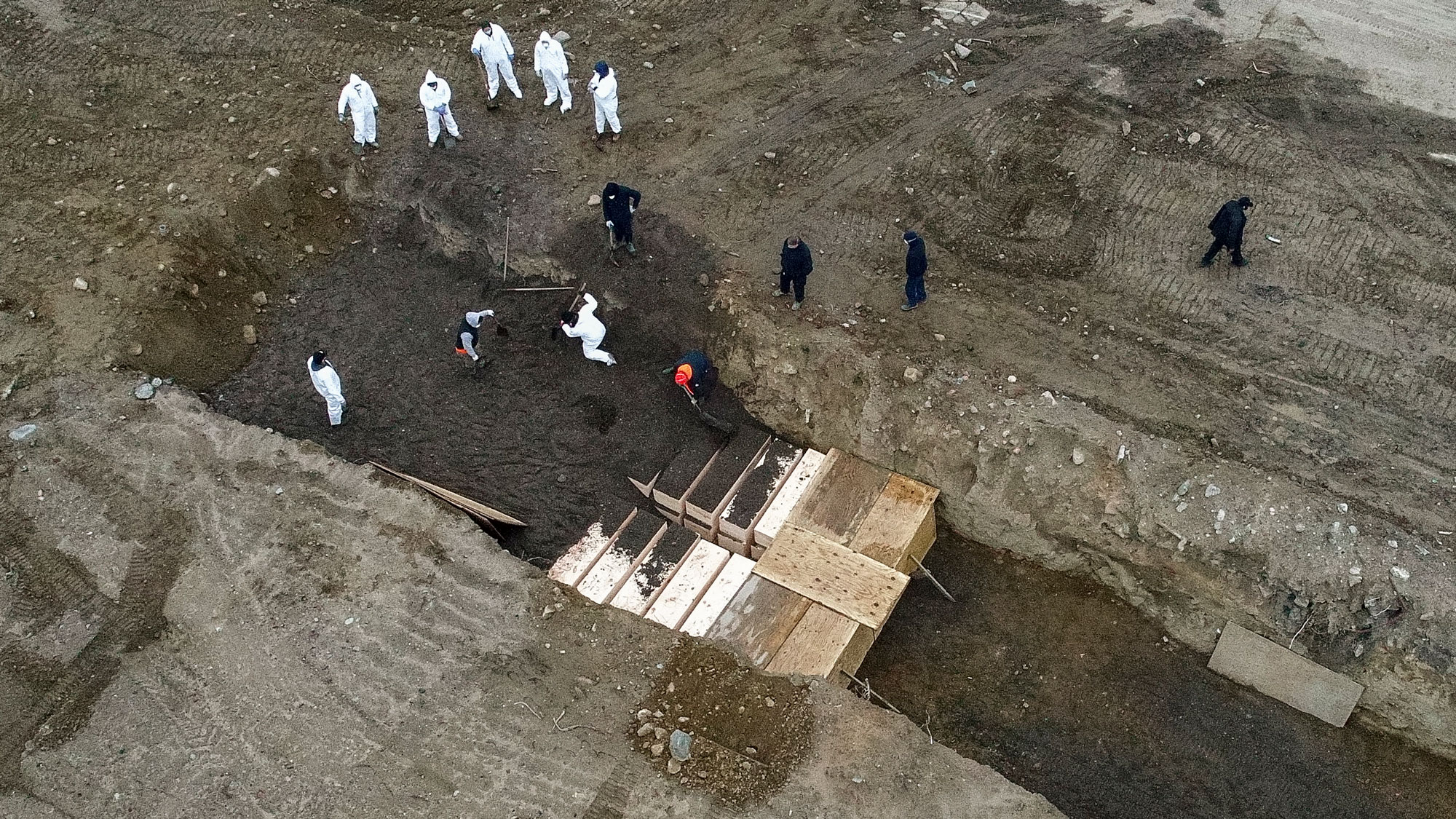 Workers bury bodies on Hart Island, a New York City public cemetery, in April. John Minchillo/AP
Workers bury bodies on Hart Island, a New York City public cemetery, in April. John Minchillo/APA new study finds that the number of deaths in the early phase of the Covid-19 outbreak in New York City was comparable to the number of deaths in New York City from what was considered the deadliest pandemic to date – the flu pandemic of 1918 – at its peak.
The relative increase in deaths during the early period of the Covid-19 pandemic was actually substantially greater than during the peak of the 1918 pandemic, the study, published Thursday in JAMA Network Open, found.
Faust said that by comparing the first two months of the pandemic in New York to the worst two months of the pandemic in New York 100 years ago, the Covid-19 period had over 70% as many deaths per capita.
"Who knows what would be the case if we didn't have modern ICUs and we couldn't treat secondary infections with antibiotics or put people on ventilators or had oxygen," Faust said. "If you compare these viruses side by side, without all the medical bells and whistles we have today, I'd say Covid-19 is worse."
"We'll never know that for sure, because thankfully now we have the ability to save more lives, but even with all our technology and medical progress, the death rate being 70% as bad as it was at the worst point in 1918, I think people don't realize how serious this is," Faust said.
The 1918 flu is estimated to have infected a third of the world's population and caused approximately 50 million deaths between 1918 to April 1920. Just like the current pandemic, it impacted some communities more than others.
More on the study: This study only takes into account data that is specific to New York City. It cannot be used to characterize the extent of this pandemic in other cities or nationwide.
Faust said what he most wants people to take away from this study is the understanding of exactly how serious this pandemic is.
"We don't need to wait until the end of it to look back and see that these events are similar in magnitude," Faust said. "What I am driving home here is that if we don't do something, if we don't take this really seriously, we – very much a year from now – could be looking at those same numbers we saw from 1918."
Atlanta mayor orders actions to address racial and ethnic disparities due to Covid-19
From CNN’s Jamiel Lynch
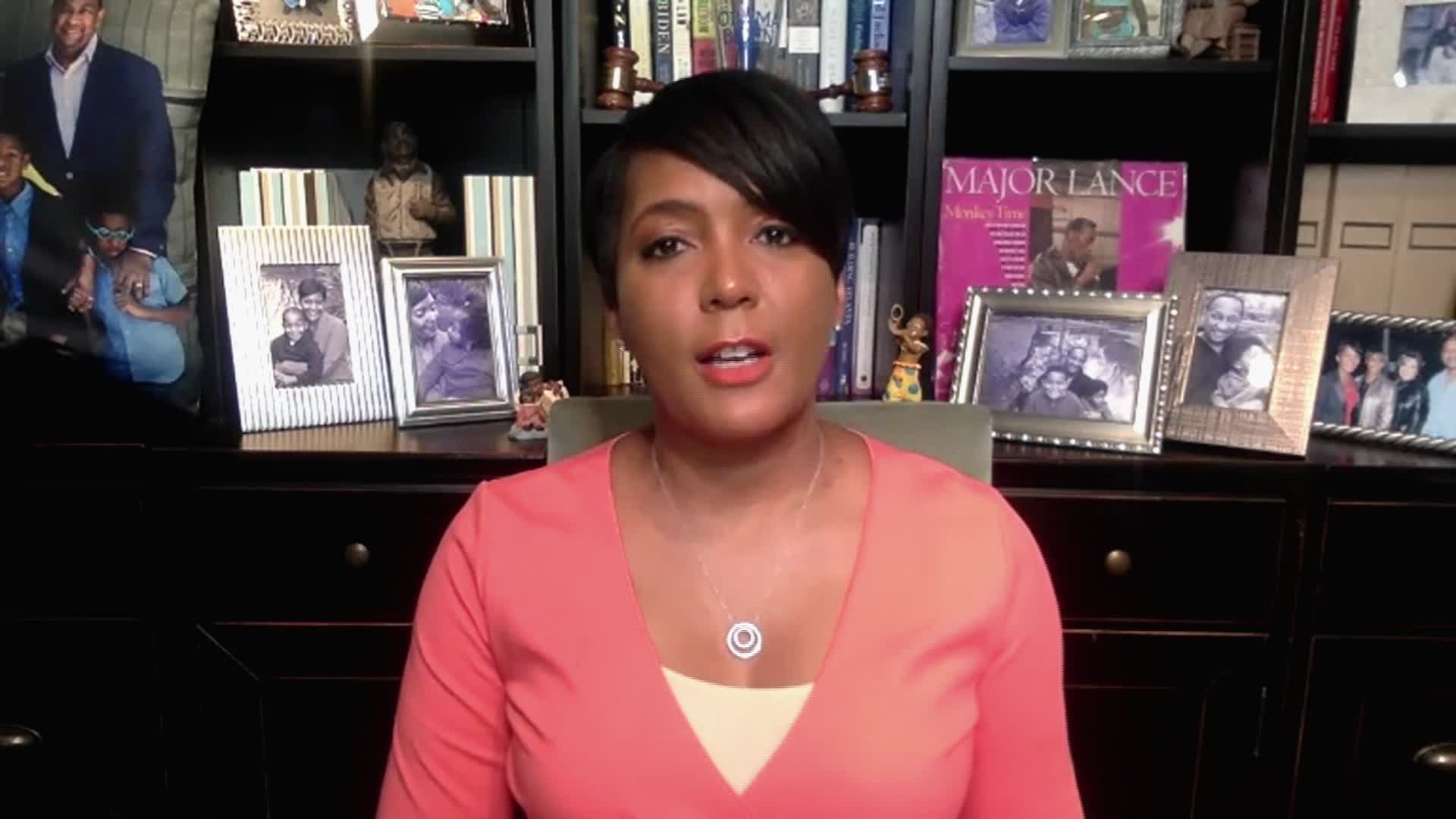 Atlanta Mayor Keisha Lance Bottoms speaks during an interview on August 11. CNN
Atlanta Mayor Keisha Lance Bottoms speaks during an interview on August 11. CNNAtlanta Mayor Keisha Lance Bottoms has ordered a series of actions to address racial and ethnic disparities due to the Covid-19 pandemic in the city, her office announced in a news release.
According to the release, the mayor’s order directs the city’s chief health officer to:
The first town hall is scheduled for Oct. 10.

 5 years ago
553
5 years ago
553 

